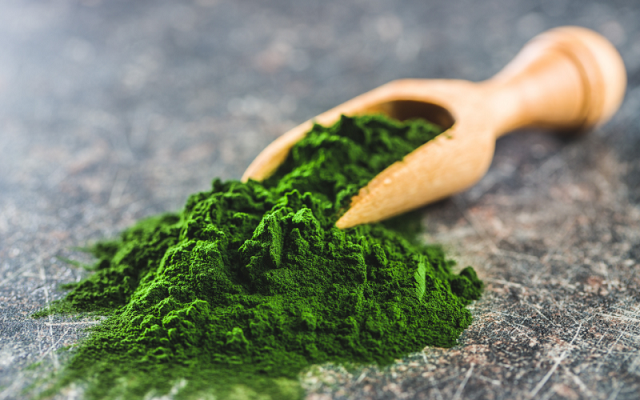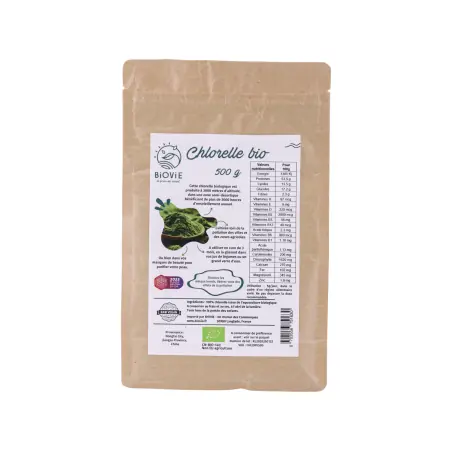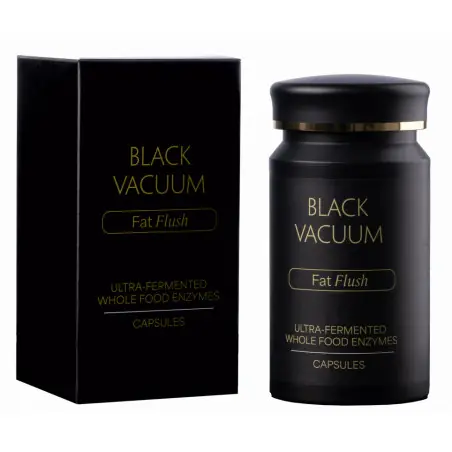Have you ever heard of chlorella? Similar to spirulina, chlorella is known for its countless medicinal and nutritional benefits. It is extremely rich in proteins (over 55%), vitamins, and minerals, and has unique properties as a chelating algae that facilitates the gentle elimination of heavy metals.
The nutritional virtues of chlorella allow it to combat cardiovascular diseases, and it is also an algae that can be used in cases of malnutrition. Very promising, chlorella is used to control cholesterol levels. Let's explore all the details together!
What is chlorella?
Scientifically known as Chlorella, chlorella is a unicellular green microalgae found in freshwater. It is rich in chlorophyll, iodine-free, and has a very low sodium content. The name Chlorella comes from the Greek word "chloros" (green) and the Latin word "ella" (small). It measures between 2 to 4 micrometers in diameter. Used in the East for generations, particularly in Japan, this product is well-known worldwide. However, in
Europe, chlorella is less renowned or popular than its sister spirulina.
There are 30 distinct categories of chlorella. But the two most exploited species are Chlorella pyrenoidosa and Chlorella vulgaris. Chlorella has a resistant cell wall, which is why our Biovie chlorella has been specifically prepared with an open cell wall to best benefit from its properties.
Chlorella is also rich in trace elements, namely: potassium, selenium, zinc, iron, phosphorus, calcium, magnesium, and manganese.
What is the composition of chlorella?
Chlorella is considered a superfood with countless merits. It contains twice as much protein as beef, with 55 g per 100 g. Its high lutein and magnesium content is extremely beneficial to bodily performance.
Furthermore, chlorella contains significant trace elements such as vitamin E, vitamins B1, B6, B12, and Omega 3.
What are the benefits of chlorella?
This microscopic green algae is truly beneficial for health, the body, and beauty:
Chlorella is particularly known for its chelating functions. It "captures" heavy metals like a sponge, chelates them, and allows the body to easily get rid of them. It is often recommended during the removal of mercury dental amalgams, in cases of smoking cessation, accidental exposure to chemical pollutants, etc.
Chlorella acts directly on detoxification and purification of the body thanks to its high chlorophyll content. Rich in microfibers, it also facilitates transit by draining, cleansing the intestinal flora, and regulating the acid-base pH balance.
It contains a lot of lutein. This is an essential pigment that is naturally found in the eye. Consuming a nutritional supplement based on lutein would limit the death of retinal cells and retinal oxidative stress.
It is highly recommended as part of a weight loss diet. It acts as an appetite suppressant and purifies the organs before a diet. Its high concentration of nutrients helps reduce the occurrence of nutritional deficiencies. It regulates the level of sugar and fats in the blood.
It should be noted that chlorella is an outstanding natural cosmetic. It can be used on the face as an anti-wrinkle mask, in combination with a cream or vegetable oil. This will facilitate the renewal of epidermal cells. Its detoxifying properties help to purify and oxygenate the skin thoroughly.

How to choose your chlorella?
It is essential to choose a high-quality organic chlorella with an open cell wall to take full advantage of its properties. Indeed, you should always prioritize a product from organic aquaculture, like the chlorella we offer. It is important to note that this superfood must be nourished by daylight to produce its chlorophyll and should ideally be exposed to sunlight.
How to consume chlorella?
You can swallow chlorella with a large glass of fruit juice or water (about 23 cl). Simply consume it 1 to 3 times a day.
Chlorella powder can perfectly blend into your dishes through various preparations. Like spirulina, chlorella has a rather strong taste that can be unpleasant for some. Therefore, it is recommended to add it to yogurt or plant-based milk, or a smoothie to mask the taste. Take 3 to 5 g of chlorella powder daily, which is about 1 teaspoon. For a simple smoothie recipe that can be made all year round: blend the powder with a banana and some frozen berries.
What is the difference between chlorella and spirulina?
Spirulina and chlorella are both freshwater algae, considered superfoods with great value. They are both extremely concentrated in vitamins. The two sisters are complementary, and their various benefits are multiplied for a regimen lasting several months.
In general, chlorella, which is rich in vitamins A, B2, B12, and Omega 3 fatty acids, is more often recommended for a cure or chelation. As for spirulina, it is more often recommended for long-term use, containing 10% more protein than chlorella. It is also rich in zinc, vitamins K1, B1, and iron.
What are the contraindications and side effects?
Overall, organic chlorella has no particular contraindications. However, it is not recommended for pregnant and breastfeeding women. Indeed, the detox phenomena it induces mean that chelated heavy metals can pass through lactation and the umbilical cord before being eliminated. And if you suffer from nephropathy, you should first discuss it with your doctor.
This microalga is contraindicated for people allergic to the Oocystaceae family. Additionally, chlorella can have side effects in individuals suffering from dermatological problems, fatigue, asthma, and light sensitivity.











